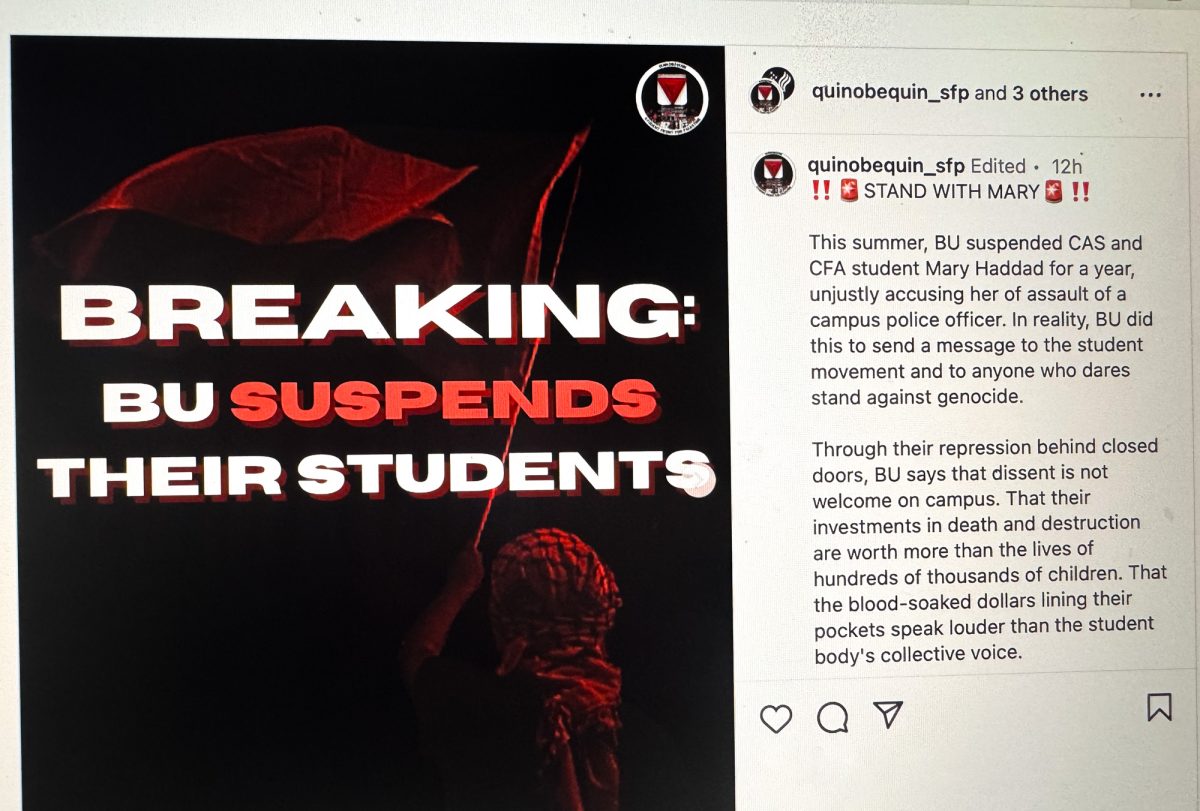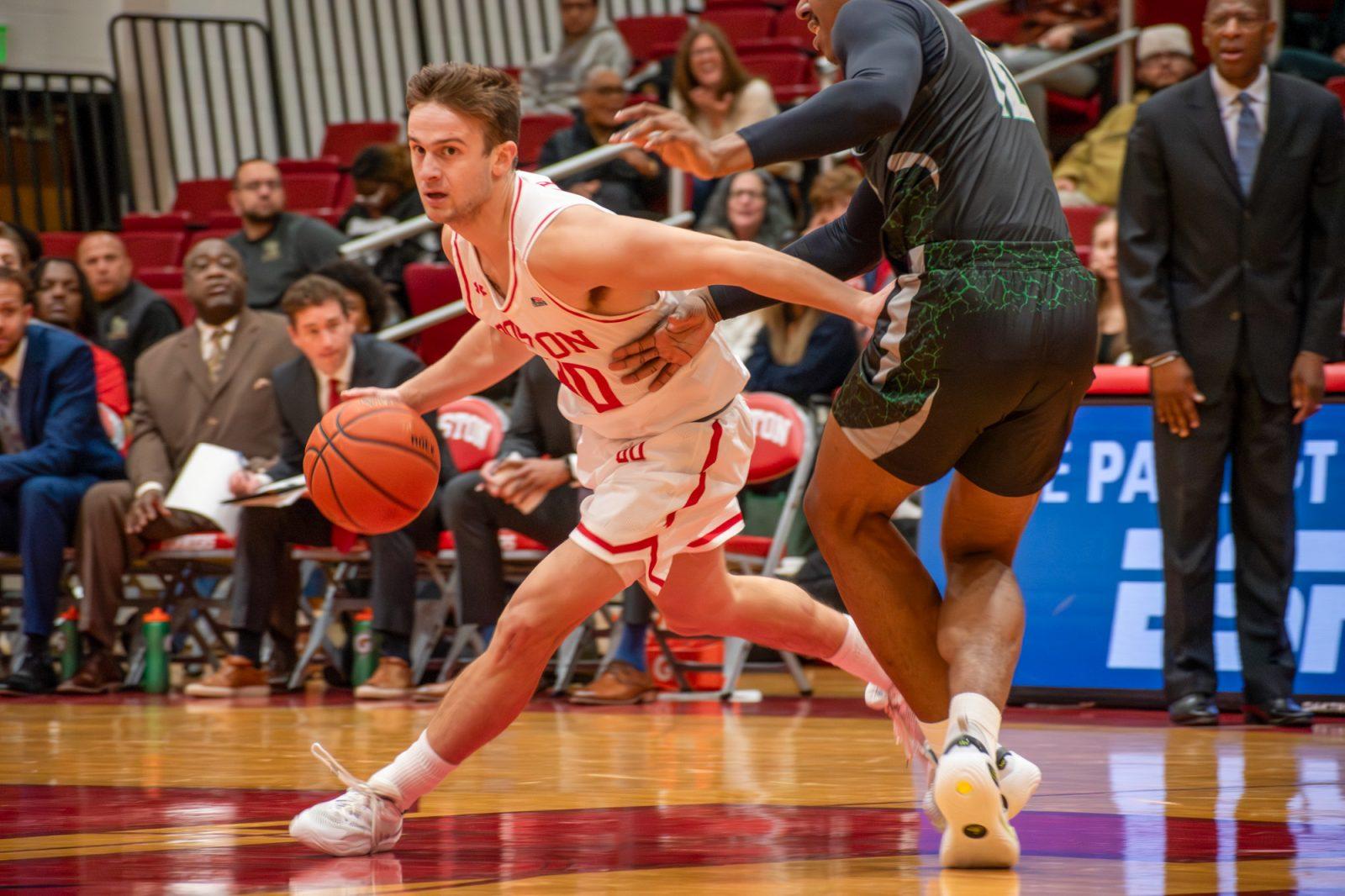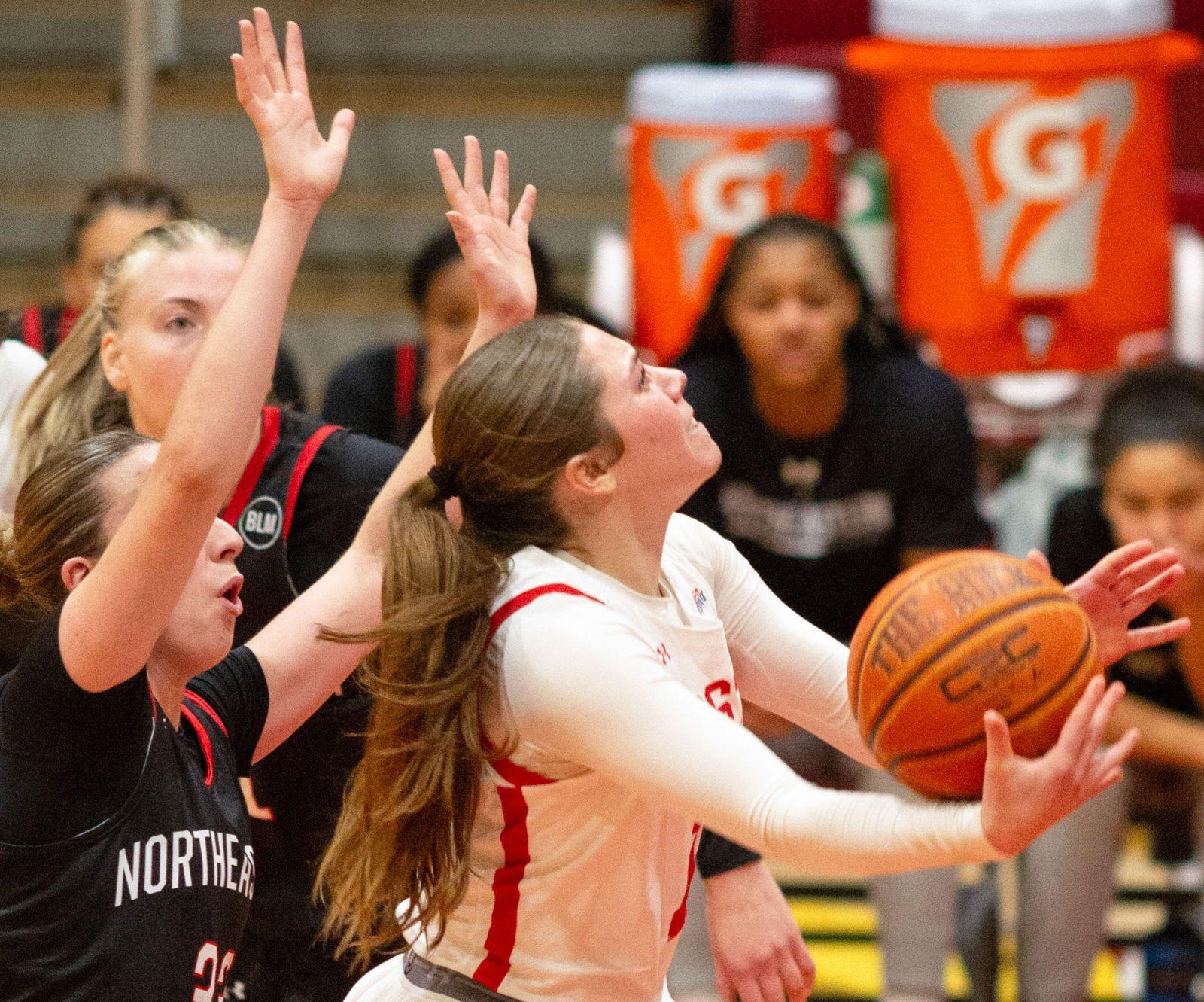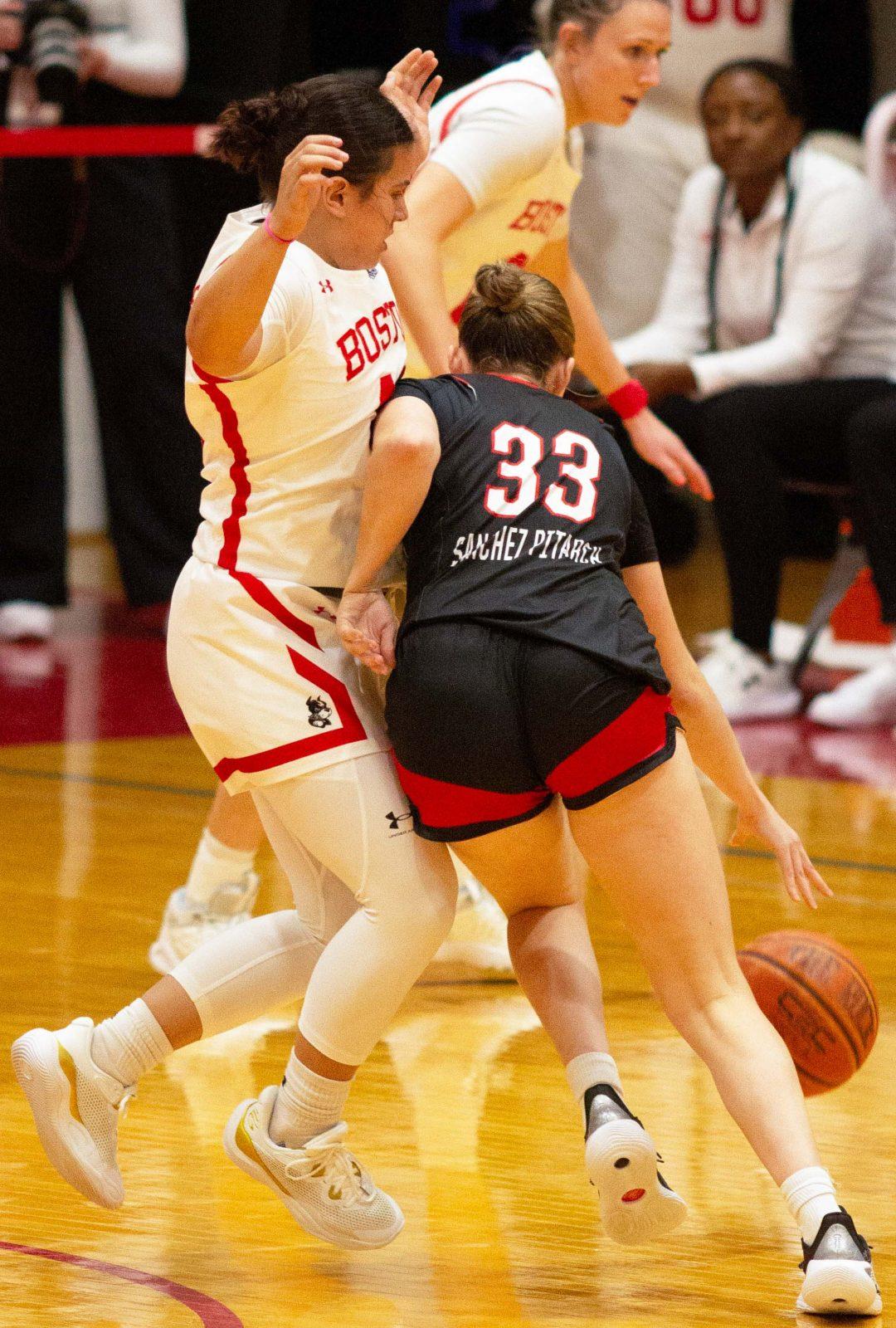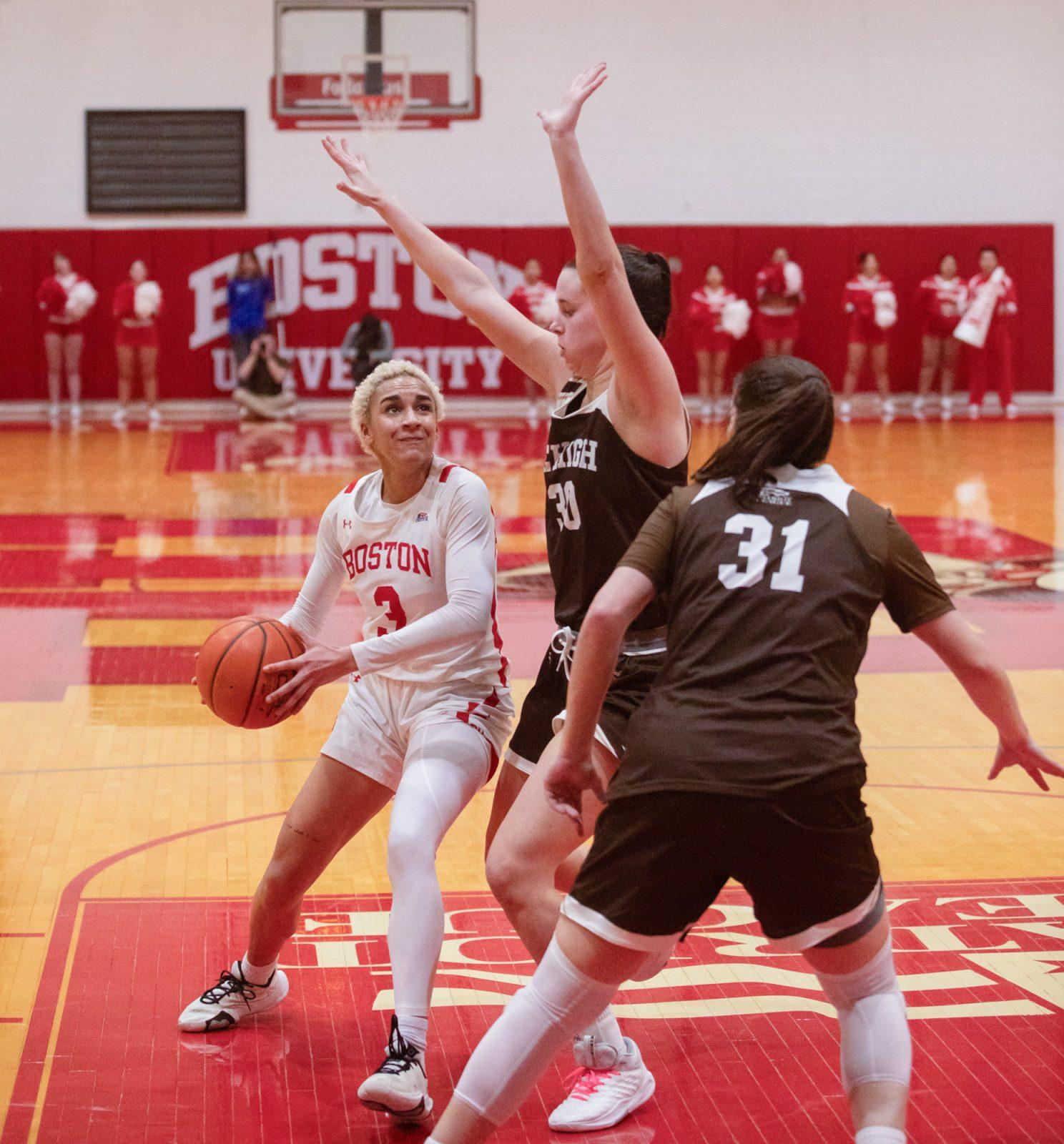If anything and above all else, the 2011-12 season was one of change for the Boston University men’s basketball program.
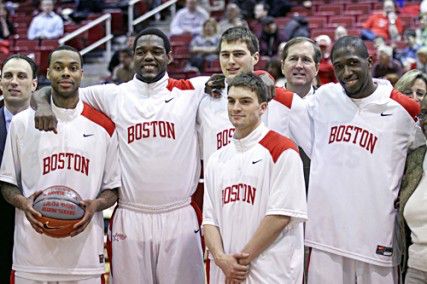
For a program that did not experience a coaching change for 15 years, the Terriers adjusted to their third head coach in four years as Joe Jones took over the program from Patrick Chambers, who unexpectedly left in June to become the new head coach at Penn State University.
Gone was leading scorer and 2011 America East Conference Player of the Year John Holland, the player who single-handedly willed the Terriers to their first NCAA Tournament appearance since 2002.
It was expected to be a challenging season for BU, even though it was not-so-surprisingly selected as the preseason pick to win the America East Conference for the fifth season in a row.
The Terriers retained a solid core of the America East championship team, most notably seniors Darryl Partin, Patrick Hazel and Matt Griffin, along with sophomores D.J. Irving and Dom Morris.
The expectations were high under the new regime, and Jones shared those lofty aspirations in his first season on the Terriers’ bench.
“Coming in, the goal is always going to be to get to the NCAA Tournament,” Jones said. “I don’t think that’s ever going to change.”
Beginning with a game against crosstown rival Northeastern University, a match-up that drew the largest crowd in Case Gymnasium history, the Terriers dropped the first four games of the season.
However, a turning point came as the team participated in the Ticket City Legends Classic in Kingston, R.I.
The Terriers dropped their first game of the tournament to Cleveland State University in heart-breaking fashion, squandering a multi-possession lead in the final seven seconds of the game to lose 63-62.
After that setback, BU won its last two games of the tournament, and went on to win its next two after that, including the program’s first win over Boston College since 1974, to get back to .500.
JBU, however, was then plagued by a seven-game losing streak, a product of factors both within and outside the locus of their control.
BU played three games without Irving, who was sidelined with a concussion he suffered in a 68-43 loss to Villanova University on Dec. 13. Without its team-leader in assists and top overall playmaker, the Terriers struggled to a 0-3 record in which they averaged just 55.7 points per game.
“If you look at it soundly and say to yourself, ‘OK, you’re going to play the schedule that you’re going to play and that you’re going to have three games without D.J. Irving in that stretch,’” Jones said. “I don’t know if I’m really worried about the overall record.”
As Jones alluded to, BU was faced with the most overwhelming stretch of a relatively daunting non-conference schedule. In a three-game stretch, all of which were losses, the Terriers had road games at Saint Joseph’s University and Villanova University, as well as a home contest against Harvard University, three teams that had a combined record of 59-38 at season’s end.
Even with the 4-10 record in non-conference play – against a schedule largely arranged and constructed by Chambers – Jones said the heightened competition, more than anything, helped team cohesion.
“I thought it brought us together for sure,” Jones said. “I just remember the feeling that we had on the road and playing in the tournament in Rhode Island. We really came together.”
Irving returned to the lineup Jan. 5 in Burlington, Vt., when the Terriers opened their America East schedule. He shot 1-for-8 in his 27 minutes and the University of Vermont blew BU out for the Terriers’ seventh straight loss.
But the Terriers turned the season around following the loss. A home win over then-winless Binghamton University on Jan. 8 was the Terriers’ first victory in a month, and everything went uphill from there.
Bu followd that up with six straight wins. In the process, BU mounted a major second half comeback at the University of Maine, controlled Stony Brook University – BU’s opponent from last year’s conference championship – beat the University at Albany by 13 points, battled with the University of New Hampshire for a two-point road win, blew University of Hartford out of its own arena and thoroughly crushed the University of Maryland-Baltimore County.
“I felt like we had hit our stride in the middle of the conference season,” Jones said. “We’re probably playing our best ball.”
BU, however, eventually stumbled in its second game against Stony Brook.
A mid-second half run sparked a shot at victory for BU, but Stony Brook ended the game in control, pushing BU back to the familiar territory of a record below .500 with an important game against Vermont coming up mid-week.
The Catamounts came to The Greek on the first day of February, just shy of one month after they blew the Terriers out of Patrick Gymnasium. At halftime, Vermont held a sizable 35-19 lead.
In the second, BU managed to score 48 points and possessed the ball for the final shot with 11 seconds remaining. But two missed 3-pointers locked Vermont into second and BU down into third.
Through the next three games, the Terriers held their third-place spot with wins at Binghamton and Albany and at home against Maine. In Albany, the Terriers earned one of their most unlikely victories of the year, trailing by as many as 17 points in the first half before scoring 50 in the second, eventually winning by three.
But New Hampshire marked the end of BU’s first winning record of the year.
BU then lost to Loyola University (Maryland) in Baltimore as part of BracketBusters, but won its final two games at UMBC and at home against the team that would turn out to be the Terriers’ opponent in the first round of the conference tournament, Hartford.
The Hawks and the Terriers met for the third time in the penultimate game of the conference quarterfinals. BU, with freshly minted America East Player of the Year Partin, was in control of the game through halftime.
But in the second half Hartford struck back. Fouls, turnovers and a number of lackluster possessions late in the game allowed the sixth-seeded Hawks to move on, and third-seeded BU’s season to come to a close.
“The bottom line I thought when we really broke it down was we didn’t get timely stops when we needed them late in the game against New Hampshire, late in the game against Stony Brook and late in the game against Hartford,” Jones said. “At Hartford, we didn’t get the timely stops and we didn’t really execute down the stretch or score late in games.”
Yet Jones wasn’t necessarily disappointed the team struggled to live up to expectations or failed to repeat as conference champions.
Instead, he rationalized.
“I don’t look at the schedule or the record as much as I look at, ‘Did we get to where we wanted to be at the end?’” he said. “And the answer is no. That’s the thing that’s more discouraging, not the record. We were 12-4, two games out of first. Is that the end of the world?”

